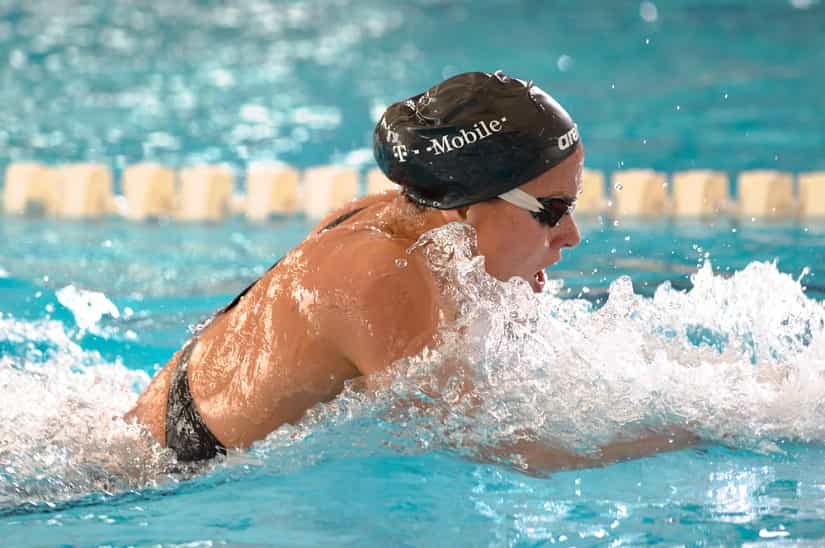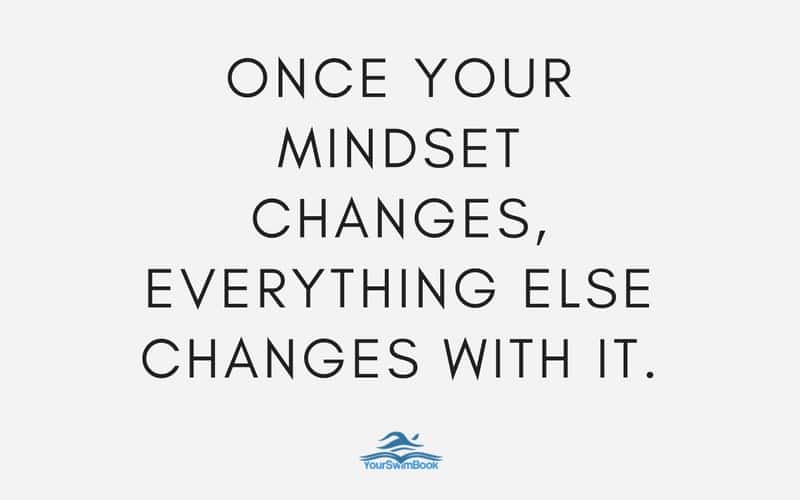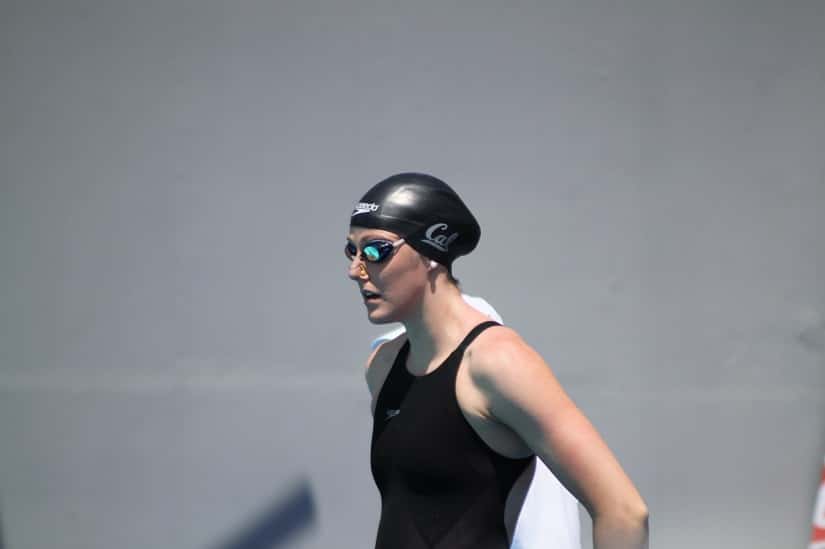Whenever I talk to young swimmers about what it takes to be successful in the sport they always mention how important the mental side aspect is:
- “You have to set goals!”
- “Be mentally tough!”
- “Have confidence in yourself!”
All great answers!
Unfortunately, when I ask how much time they spend working on developing these things often I get shrugs and crickets.
Which is too bad, because as research has shown on athletes from all sports, mental training is one of those things that everyone knows is important, but very few actually take the time to implement.
(Which is great news for you.)
For most athletes, it’s a lack of understanding of how to make the most of the broad subject that is mental training. Or they have tried it before with mixed results. Or they simply don’t know where to start with training their mental skills.
Before jumping into improving your mental game, keep these three keys to success in mind:

1. Be consistent with it for max results.
This is the biggie.
I’ve lost count of how many emails I have received from young swimmers on the eve of a big competition asking how they can be more mentally tough, or what they can do to swim their best the following day.
(Short answer: breathe deeply and have fun. Seriously. It’s too late to do much else.)
You know that you have to work hard consistently in the pool, and it is no different when it comes to crushing the mental side of the sport.
Using visualization in your swimming, for instance, is a powerful way to help calm anxiety and even boost performance mid-practice. Similarly, mindfulness is something you can use to de-stress during heavy training, sleep better, and even calm yourself when you are getting over-excited at the big meet.
The more regularly you do these things, the better you get at them. And the better you get at them, the more they will be able to serve you when you need them most.
Your mental game is a muscle, something that gets stronger the more consistently and regularly you do it. It’s not a band-aid or something you can cram in overnight to your workouts and experience silver bullet results.
The real power comes from mastering these skills over the long term. And this, my chlorinated homie, requires consistency.
2. Structured with feedback.
One of the reasons that swimmers resist incorporating mental training into their swimming is that it is much harder to measure.
Things like increasing your stroke rate, stroke length, times, amount of weight you can lift—all of these physiological markers are easy to measure and track. Confidence, focus, habits, visualization—not so much.
As a result, it can be a challenging to see where and if you are improving.
That is why your mental training skills work should be done with the structured feedback of your coach. They are best positioned to be able to observe and evaluate the work you are doing on keeping your mind right.
Sit down with your coach regularly and assess both your training and the things you are doing to be mentally tough.

3. Be targeted with your approach.
One of the key points I stress in the “Dominate the Pool” mental training skills eBook is to really focus on the pain points in your mental preparation.
“Mental training” is a broad topic, and while I applaud the motivation to want to dive straight into mastering self-talk, mental toughness, visualization and all the rest overnight, it’s best to start with the 1-2 things that you are really struggling with.
Trying to tackle everything at once can leave you feeling a little disheartened and frustrated. Instead, zero in on the things where you can really supercharge progress.
For example, if you find that you are inconsistent in swim practice you would want to start by making regular training goals and using progress as feedback to see how realistic your goals are matching up to your effort.
If you are having a hard time controlling anxiety and stress before races you would want to start by working on mindfulness training.
And so on.
I love that you want to upgrade every aspect of your mental game, but this all-or-nothing approach never works.
It simply isn’t sustainable.
Start with the 1-2 things you most want to improve—from there move on to other areas of your mental approach.
Next Step:
- When Things Go Sideways, Top Swimmers Rely on Mental Training. The fastest swimmers are the most resilient swimmers. Here’s how spending a few minutes a day getting your mind right can help you stay calm and focused in the face of adversity.
- At What Age Should Swimmers Start Mental Training? Coaches and elite swimmers talk about how the difference is often mental when it comes to performance. Here are some thoughts and suggestions for when swimmers should start dialing in the mental side of the sport.














